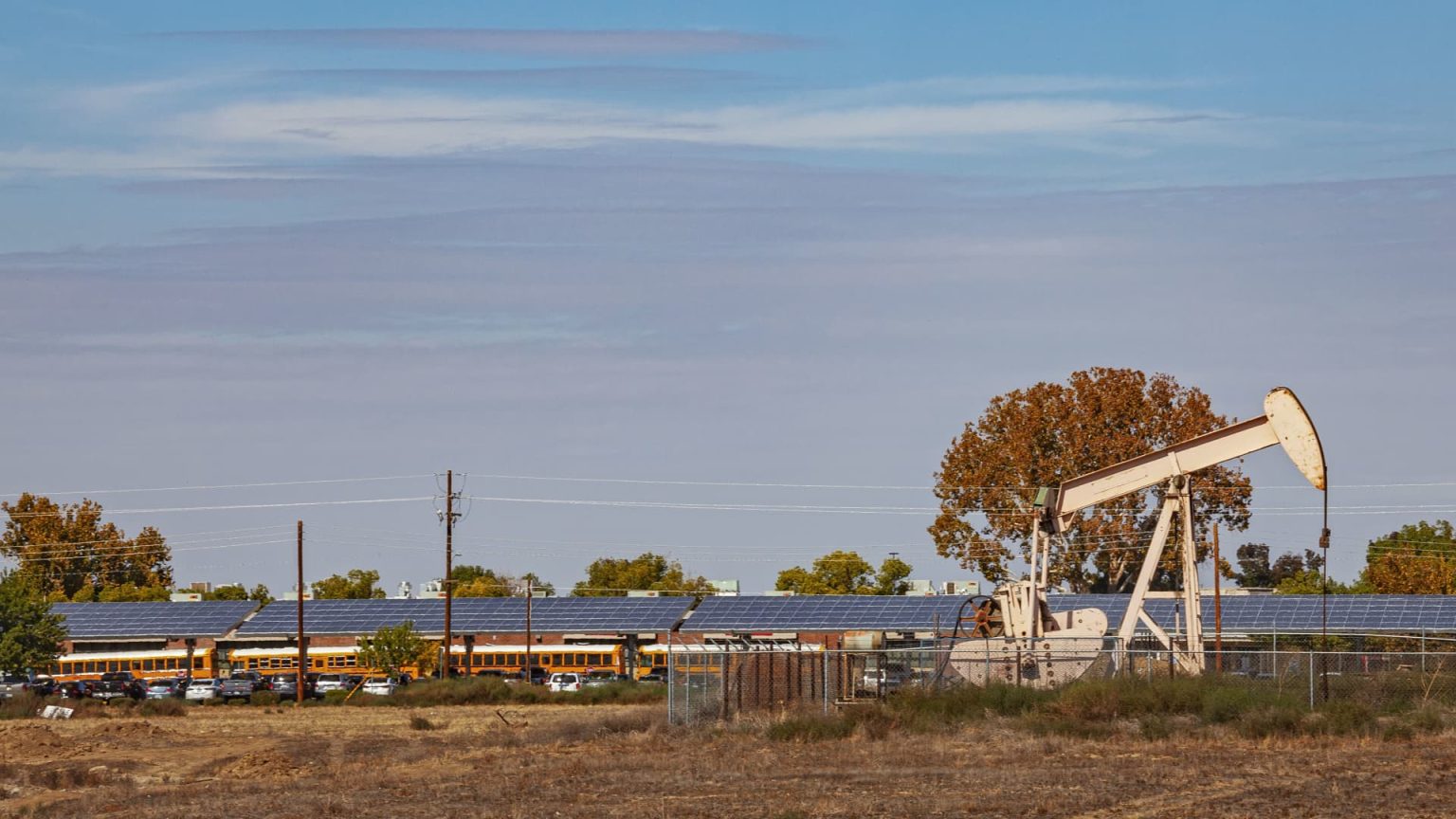Pumpjack near school buses, Arvin, Kern County, California, USA.
Citizens Of The Planet | Universal Images Group | Getty Images
This report is from today’s CNBC Daily Open, our new, international markets newsletter. CNBC Daily Open brings investors up to speed on everything they need to know, no matter where they are. Like what you see? You can subscribe here.
What you need to know today
Digesting data
U.S. markets traded higher Monday as all three major indexes edged up. Asia-Pacific markets were mostly higher Tuesday. Hong Kong’s Hang Seng Index was near flat as advance estimates showed the city’s second-quarter gross domestic product contracting 1.3% quarter on quarter. Meanwhile, Australia’s S&P/ASX 200 rose around 0.7% as the central bank kept interest rates unchanged at 4.1% for the second straight month.
Intrigue in India
Investors are growing interested in India as the country’s economy expands and stock market rallies — even amid high inflation. “Whatever the world is grappling with, it’s business as usual for India,” said Feroze Azeez, deputy CEO of Anand Rathi Wealth. Here are four sectors analysts think are the most appealing for investors.
HSBC’s humongous profit
HSBC reported second-quarter earnings that easily beat analysts’ expectations. Pre-tax profit of the largest bank in U.K. jumped 89% year-on-year to $8.77 billion, while revenue surged 38% to $16.71 billion. In light of those sterling results, HSBC’s board announced they’re planning to initiate a share buyback of up to $2 billion.
New filing against JPMorgan Chase
JPMorgan Chase handled more than $1.1 million in payments from Jeffrey Epstein to “girls or women” even after the bank says it removed the sex offender as a client in 2013, a lawyer for the U.S. Virgin Islands told a judge Monday. The Virgin Islands alleges that JPMorgan facilitated and financially benefited from Epstein’s sex trafficking of young women.
[PRO] Benefiting from bankruptcies
Corporate insolvencies in the U.K. have been rising in recent months. While it’s bad news, obviously, for those bankrupt firms, two global stocks stand to gain from the trend — analysts expect one of them to pop 31% over the next 12 months.
The bottom line
A soft landing — where inflation cools while the U.S. economy, labor market and corporate earnings continue growing — is, of course, good news for markets.
Traders think that scenario is looking increasingly likely. Stocks inched up Monday. The S&P 500 added 0.15%, the Dow Jones Industrial Average rose 0.28% and the Nasdaq Composite advanced 0.21%.
That gave all indexes a rosy July. For the month, the S&P climbed 3.1%, its fifth consecutive month of gains. The Dow jumped 3.4% after experiencing a 13-day rally, its longest since 1987. The Nasdaq Composite popped 4.1%, its first five-month streak in more than two years.
The optimism extended to the commodities market. The promise of higher economic activity, after all, raises demand for the raw input needed to keep the world moving, literally.
Oil prices had their best month since January 2022, when both Brent crude and West Texas Intermediate crude added more than 17.2%. As of publication time, October Brent futures were trading at $85.19 per barrel and the September WTI contract at $81.6 per barrel.
Metal prices are climbing as well. Prices for aluminum and zinc rose 2.7%. Copper — typically seen as an indicator of economic activity because it’s used in most parts of the economy — is at its highest since May 1, putting it on track to have its best month since January.
Rocketing stock prices might not necessarily, or directly, have effects on the cost of eggs in grocery stores, for example. But a hot commodities market nudges up prices in the real world.
That’s the difficult balancing act the Federal Reserve has to contend with: As a soft-landing scenario becomes more plausible, renewed economic activity might, ironically, make inflation harder to suppress.
Read the full article here




